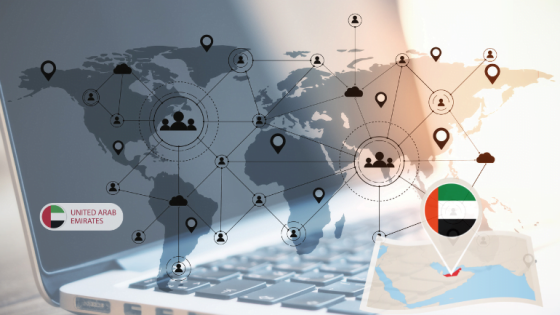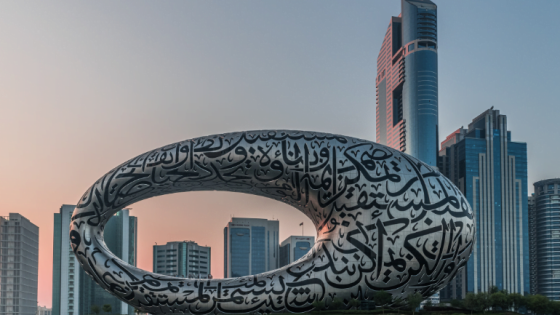Contents
- 1 leadership in UAE workplaces overview
- 2 Leadership in UAE Workplace Strategies
- 3 Leadership styles in UAE
- 4 Impact of Leadership Styles on Employee Performance
- 5 Women in the uae workforce
- 6 Leadership development programs
- 7 UAE workforce and Leadership in UAE Workplaces
- 8 Effective leadership in UAE workplaces and COVID-19
Leadership in UAE workplaces: the United Arab Emirates (UAE) is a bustling hub of business and innovation, offering a wide range of leadership jobs and opportunities across various industries. The dynamic corporate landscape of the UAE (especially Dubai and Abu Dhabi) is driven by visionary leaders who shape the culture, guide their teams, and foster success. This article explores the importance of leadership in UAE workplaces, the different leadership styles that prevail, and the impact of the effective leadership sector on employee engagement and career growth. We will also delve into the unique cultural aspects of the UAE, the role of women in leadership positions, and the initiatives taken to promote diversity and inclusion.
leadership in UAE workplaces overview
Leadership plays a pivotal role in the success of any organization, and the UAE is no exception. Effective leaders in the UAE understand the importance of setting a clear vision and inspiring their teams to achieve it. They possess the necessary skills to manage and motivate employees, creating a positive and engaging work environment. Leadership in the UAE is not limited to senior executive positions; it extends to all levels of management and across various job roles. Whether leading a small team or overseeing an entire organization, leadership skills are highly valued in UAE workplaces.
Leadership in UAE Workplace Strategies

To excel in UAE workplaces, leaders must adopt effective strategies that resonate with the local culture and business environment. Here are the most 5 effective leadership strategies in UAE workplaces:
- Developing authentic leadership is critical, as leaders prioritising trust and transparency can build strong team relationships.
- Emotional intelligence is another essential skill for leaders, enabling them to understand and manage emotions effectively, fostering positive relationships and enhancing team dynamics.
- Building strong team relationships through collaboration and communication is crucial for effective leadership, as it promotes trust, engagement, and productivity.
- Visionary leadership strategy, which involves inspiring a shared purpose and direction, can drive organizational success and motivate employees to achieve their goals.
- Promoting work-life balance is essential for leaders to ensure employee well-being and maintain a healthy and productive workforce.
Read more: UAE Work Satisfaction Factors
Leadership styles in UAE
About leadership in UAE Workplaces: different leadership styles can be observed in the UAE, each with its unique approach. Transformational leadership is widely embraced, where leaders inspire and motivate their teams to transcend their limitations and achieve extraordinary results. This leadership style encourages innovation, creativity, and personal growth among employees. On the other hand, transactional leadership is also prevalent, where leaders focus on rewarding good performance and providing guidance through clear expectations and accountability. These leadership styles have a significant impact on employee engagement, job satisfaction, and overall performance.
Impact of Leadership Styles on Employee Performance

Different leadership styles impact Emirati and international employees’ performance in UAE workplaces. Transformational leadership, characterized by inspiration, motivation, and intellectual stimulation, has a positive effect on employee engagement and productivity. And these styles are:
Transactional leadership
Transactional leadership, which focuses on rewards and punishments based on performance, maintains structure and accountability in the workplace.
Servant leadership in UAE workplaces
Servant leadership, where leaders prioritize the needs of their employees, fosters a positive work environment and enhances employee well-being.
Situational leadership
Situational leadership, which involves adapting leadership style to different contexts, enables leaders to respond to the diverse needs of their teams effectively.
Cross-cultural leadership
Cross-cultural leadership is especially relevant in the UAE, given its diverse workforce, and requires leaders to navigate cultural differences and foster inclusive environments.
On one hand, studies have shown that the impact of leadership styles on employee performance is significant. A survey conducted in the UAE explored the relationship between different leadership styles and employee engagement. The findings revealed that transformational leadership had a positive impact on employee engagement, job satisfaction, and overall performance. Employees who worked under transformational leaders reported higher levels of motivation, commitment, and creativity. On the other hand, transactional leadership was associated with higher levels of compliance and adherence to established procedures. These insights emphasize the importance of leadership styles and their direct impact on employee well-being and success.
Read more about: UAE Climate and Agriculture; Climate Change
Women in the uae workforce

In recent years, there has been a notable focus on promoting gender diversity and empowering women in the UAE workforce. Women in leadership contribute significantly across various industries, challenging traditional norms and breaking barriers. The UAE government has implemented initiatives to support women in leadership roles, encouraging their career growth and providing equal opportunities. This commitment to gender diversity not only fosters inclusivity but also brings diverse perspectives and ideas to the table, leading to innovation and success.
Leadership development programs
Leadership development programs have gained prominence in the UAE, recognizing the importance of investing in the skills and capabilities of future leaders. These programs aim to enhance leadership skills, promote self-awareness, and provide guidance on effective management practices in uae private sector. By offering leadership development opportunities, organizations in the UAE ensure a strong leadership pipeline and nurture the potential of their employees. These programs also provide a platform for networking and collaboration among emerging leaders, fostering a culture of continuous learning and growth.
Read more: UAE climate effect of landscape in climatic change
UAE workforce and Leadership in UAE Workplaces
The UAE’s diverse workforce, comprising people from various cultural backgrounds, presents unique opportunities and challenges for leaders, especially workers with senior leadership roles. Cross-cultural leadership skills are essential to navigate cultural differences, promote inclusivity, and foster collaboration. Leaders who embrace diversity and create an inclusive work environment are better positioned to leverage the talents and perspectives of their diverse teams. By promoting cultural understanding and appreciation, leaders in the UAE can build cohesive teams that drive innovation and achieve outstanding results.
Effective leadership in UAE workplaces and COVID-19
The COVID-19 pandemic has further emphasized the importance of effective leadership in UAE workplaces. Leaders had to swiftly adapt to the challenges posed by remote work and ensure the well-being and productivity of their teams. Leaders who demonstrated empathy supported their employees’ well-being, and effectively communicated goals and expectations were able to navigate this crisis successfully. The pandemic highlighted the significance of emotional intelligence in leadership, enabling leaders to understand and address the unique needs and concerns of their employees during challenging times.
Read more: Business Mentor UAE
What is the leadership style in UAE?
A directive and paternalistic style will characterize directive and paternalistic style, the management approach at the local level. Managers must provide precise and explicit instructions to their subordinates, who will be expected to adhere to these instructions strictly.
How is the work culture in UAE?
Valuing local traditions, including conservative dress codes and adherence to Islamic customs, is crucial. Additionally, punctuality and a strong work ethic are considered essential. Establishing and cultivating professional relationships with colleagues and superiors are vital for achieving long-term success in the UAE.
In conclusion, leadership in UAE workplaces is a critical factor in driving success and fostering innovation. The UAE’s dynamic and diverse business environment calls for leaders who inspire, motivate, and engage their teams. By embracing different leadership styles in other leadership jobs in the UAE, understanding cultural values, and promoting diversity and inclusion, leaders in the UAE can create a positive work environment that nurtures the potential of their employees. With a focus on leadership development programs and gender diversity initiatives, the UAE continues to pave the way for a future where effective leadership is the cornerstone of organizational success.













